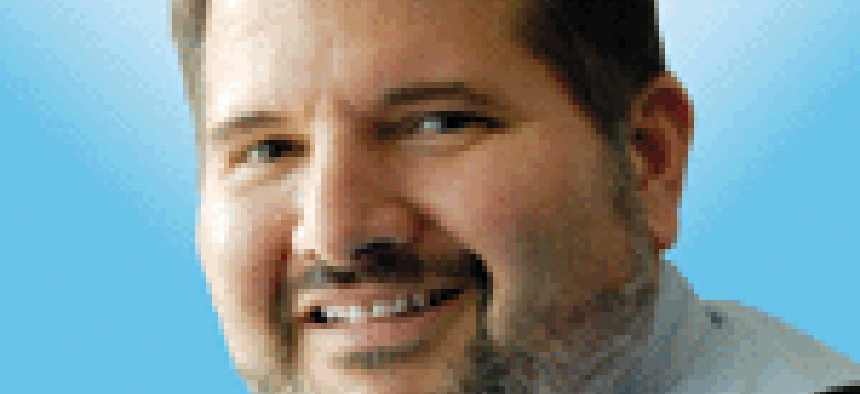Deloitte's Dan Helfrich: Don't be a dinosaur, embrace change

Deloitte's Dan Helfrich explained the dangers of resisting change and why contractors and customers need to embrace new ways of doing business.
As the government market moves deeper into this trend of adopting more commercial technologies, change management is a critical factor.
The move from the classic "butts in seats" model to more of a solutions/as-a-service model means that contractors, customers and the workforce face fundamental changes to how they do things.
Often this means breaking with tradition. It also means taking on risk. And with change, there also comes resistance.
As Dan Helfrich, Deloitte Consulting’s public sector leader, explained at our WT Power Breakfast Wednesday there is a reason government customers like their mainframe legacy systems. Despite high costs and age, they reliably crunch large amounts of data.
“They still work,” he said.
But overcoming that natural resistance to change doesn’t mean that you have to convince everyone, Helfrich said.
At Deloitte, they often look at different work styles to identify the best way to work with a customer.
Helfrich explained that people generally have one of the following four work styles:
- Guardians: Detailed-oriented pragmatist
- Integrators: Empathetic diplomat
- Drivers: Focused competitor
- Pioneers: Outgoing risk takers
Guardians might be the largest and most resistant to change. Say they are 60 percent of the workforce. The pioneers might be just 5 percent of the workforce. But that 5 percent can lead the way.
“It took the 5 percent to crossover and believe in ERP (enterprise resource planning). It took the 5 percent to crossover and believe in the cloud,” Helfrich said.
And when the Pioneers find success, the Guardians believe in them and will follow.
“Those 5 percent get things done and they will pull along the other 60 percent,” he said.
Managing change just isn’t a customer issue. Government contractors themselves face a similar challenge as they weather disruptions to their business models because of the cloud and the greater demand for as-a-service offerings.
As that change occurs, companies need to move away from the mindset that growing their business is predicated on adding more people to the job, Helfrich said.
“This notion of how many FTEs (full-time equivalents) did you add to your project will soon go the way of the dinosaur,” he said. “I get real uncomfortable when my team talks about FTE additions.”
The shift is toward an outcome-based approach.
“Gone are the days when you can compete on people alone,” Helfrich said. “Now it has to be the intersection of people, solutions, intellectual capital and sometimes data that you fuse together.
"Those that recognize that will be the winners.”
NEXT STORY: Noblis names new president of ESI group
